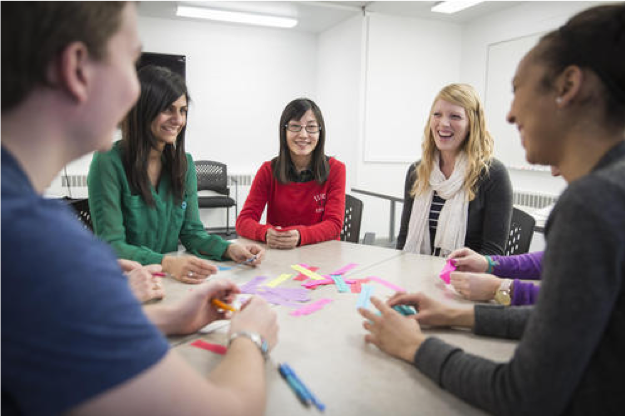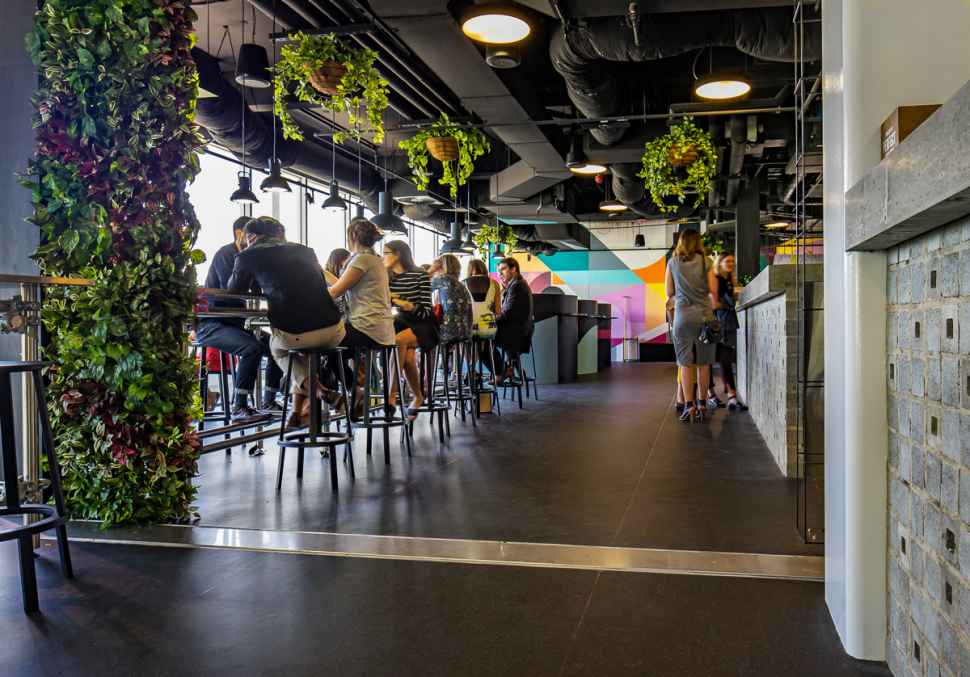
Lectures
As long as there have been universities, there have been lectures (and there have been students falling asleep in lectures!). Despite advances in technology that allow for slides and recordings and things that make the dissemination of information a little bit more engaging, the primary function and format of lectures hasn’t really changed much.

Lectures are run in most topics, and they’re delivered to all students at once. That means there might be hundreds of students watching a lecture at any one time. Back in my day, that meant we were all squished into a single theatre together, but now it tends to mean students are spread out in the theatre, or watching at home or in the library. Either way, the purpose of a lecture is for an expert to transmit knowledge to students. The bulk of the topic’s core information is shared this way.
But how do you keep concentration?
The drawback of lectures is that as a passive learning style, it can be hard to maintain concentration. Sometimes the constant stream of information of a lecture can be difficult to focus through, and some lecturers definitely are more engaging than others. Note-taking not only helps you remember and retain information (plus engage critical thinking!), it also keeps you alert.

While the lecturer will probably use slides, they may not contain all information that is covered, and so active listening and critical thinking skills are important. Slides are important aids though, and other visuals such as videos, graphs, tables etc, may also be used. These are generally available to download from FLO. Don’t forget, you can always re-watch a lecture online if you missed anything!
If anything is confusing, or if you hear something you would like to have elaborated in class, take down questions that you can bring up in tutorial discussions, as these will usually draw on lecture content.
Tutorials
Tutorials are quite different to lectures and may resemble what you are more accustomed to if you’ve come from high school, except the expectations here are a little more advanced. They have much smaller class sizes and you’ll have the opportunity to engage in active learning. While your lecturer may change from week to week, your tutor will be the same throughout the semester. This means you’ll have more of an opportunity to develop a relationship.
Most tutorials are based around content from the week’s lecture and readings and you’ll be expected to engage in discussion, problem solving, or small group activities. This is where you get to unpack what you’ve learnt, tease out the complexities and nuances of the content, have your questions answered, and get to learn not only from your tutor and lecturer, but from your peers.

You should participate in tutes!
Tutorials are also more intimate than lectures, and your tutors will get to know you, your interests, your strengths and weaknesses, and your understanding of the topic content. Often participation is graded in tutorials, and this doesn’t simply mean showing up. While it can be daunting to share your views in class, it can have a very positive impact on your knowledge and skills, and on your tutor’s perception of you. A tutor is often more likely to take interest in and further engage with a student who makes regular positive contributions to class. Tutorials are also an excellent place to get to know your peers and maybe even make some friends. As a tutor, I have even witnessed the odd romance blossom in my classes.

Tutorial discussions can be challenging, and they can help you to think about concepts in new or different ways, to broaden your thinking, or reinforce and strengthen knowledge. For these reasons, it’s important to remember that tutorials should also be safe spaces for discussion. Be respectful and courteous to other students, and of course, come to class having read the material (your tutors know when you haven’t!)
You first tutorial will probably be quite relaxed. You’ll be introduced to your class and to your tutor, and they will go over the class expectations, the topic content, the types of assessment to expect, as well as topic specific information such as if there are participation or lecture attendance requirements. They may also go through the topic handbook that will explain contact details, assessment, referencing requirements, reading lists etc. Don’t be afraid to ask questions. This is part of preparing yourself for the semester and being an independent learner. If you are unsure of details, make it known!
Lab Sessions
If you study on the south side of the lake, you’ll probably have some lab sessions. Lab sessions involve practical tasks and a demonstrator will be present to guide you through the session.

It is very important that you are prepared. Complete your readings and attend lectures, and come to the lab understanding what is required. Otherwise, you may not be able to complete your set task in the given time. You will have to follow up your session with a lab report, and you can find more information about what these should look like in the Learning Lounge, or online through the Student Learning Centre portal on FLO.
In between classes
What you do between your lectures and your tutorials is, really, up to you. But I will give you some hot tips. Remember that full time study means full time work. Time between lectures and tutorials can be spent very productively. Go to the library or the common room to study or catch up on lectures and readings. Keeping up with regular input into your studies means you won’t fall behind. But, if you are on top of things, don’t feel guilty about relaxing!

Relaxing is allowed, and in fact, FUSA offer a lot of ways that you can do just that on campus. Socialise, lay on the grass, have a coffee, or join a FUSA club. The activities that you take part in on campus can have a direct and beneficial impact on your studies. The friends that you make can help to keep you sane and offer you support when you need it. Plus, they make university fun! Balance work and downtime effectively, and you’ll have a great experience here.

